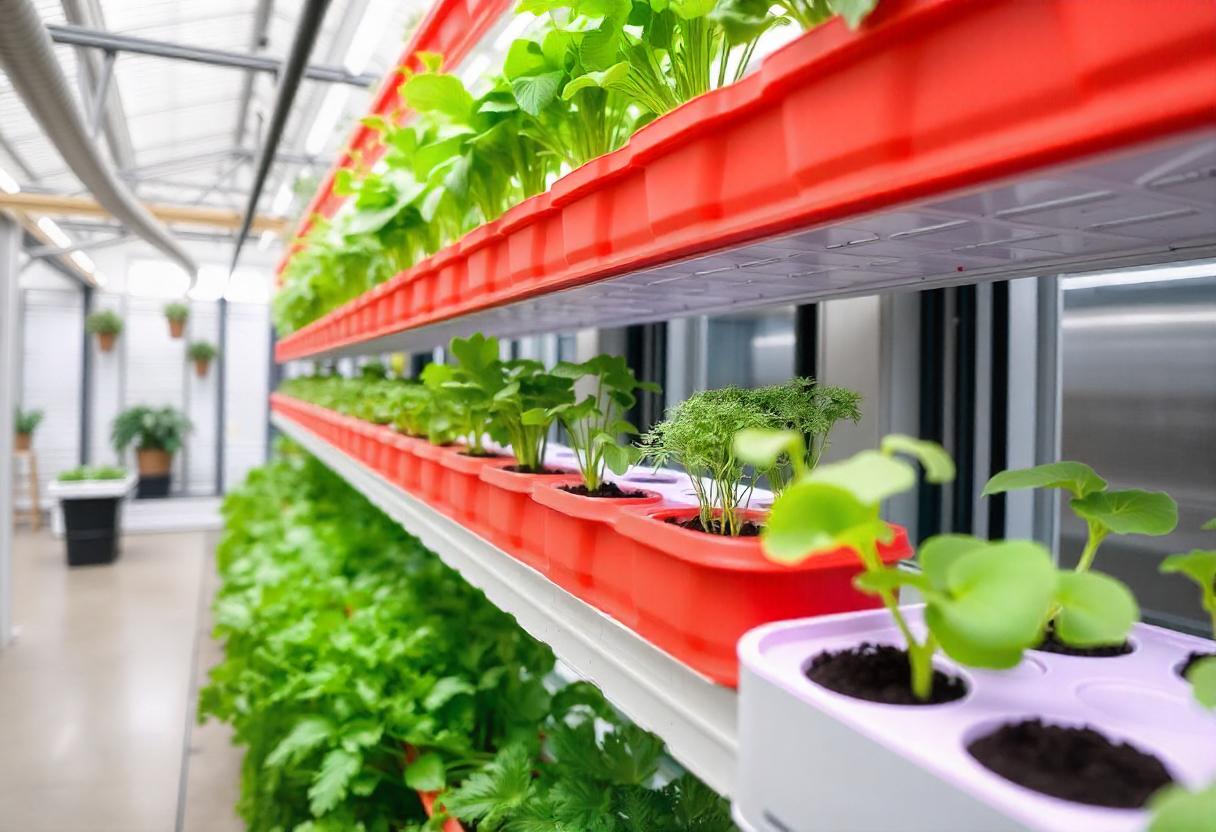
Vertical farming and indoor agriculture are innovative agricultural practices designed to address challenges in food production, such as limited arable land, climate change, and population growth. By utilizing controlled environments, these methods offer a promising solution to growing food in urban areas or regions with harsh climates.
What is Vertical Farming?
Vertical farming is a technique where crops are grown in vertically stacked layers, often in a controlled indoor environment. This method maximizes space efficiency and allows for year-round production. Vertical farms typically use hydroponic or aeroponic systems, reducing the need for soil and minimizing water usage. The controlled environment also helps regulate temperature, light, and nutrients, ensuring optimal growth conditions.
Key Benefits of Vertical Farming
- Space Efficiency: Vertical farming allows for the cultivation of crops in smaller areas by utilizing vertical space, making it ideal for urban environments.
- Water Conservation: These systems often use up to 90% less water than traditional farming methods, making them more sustainable.
- Pest Control: The enclosed environment helps prevent pests, reducing the need for chemical pesticides.
- Year-Round Production: Controlled environments enable consistent crop production, independent of seasonal changes.
Indoor Agriculture: Expanding Controlled Environments
Indoor agriculture refers to the practice of growing crops in fully enclosed and controlled environments, often without natural sunlight. It includes greenhouses, warehouses, or even specially designed buildings. Indoor farms rely on artificial lighting, climate control systems, and nutrient solutions to maintain plant health and productivity.
Types of Indoor Agriculture Systems
- Hydroponics: This system grows plants in a nutrient-rich water solution without the use of soil.
- Aeroponics: In aeroponics, plants are suspended in the air, and their roots are misted with a nutrient solution, allowing them to absorb the required nutrients.
- Aquaponics: Aquaponics combines hydroponics with aquaculture, where plants grow in water that contains fish waste, which provides natural nutrients for the plants.
The Role of Technology in Vertical Farming and Indoor Agriculture
Technology plays a critical role in the success of vertical farming and indoor agriculture. From LED lighting systems that mimic natural sunlight to automated climate control systems, technological advancements ensure that plants receive the right conditions for optimal growth. Sensors, data analytics, and artificial intelligence are also employed to monitor plant health, manage resources, and improve efficiency.
Importance of Artificial Lighting
LED lighting is a vital component of indoor agriculture, providing plants with the specific wavelengths of light they need for photosynthesis. These lights can be customized to match the growth stages of the plants, ensuring that they receive the right light intensity and duration for optimal growth.
Environmental Impact of Vertical Farming and Indoor Agriculture
Vertical farming and indoor agriculture have a lower environmental footprint compared to traditional farming methods. By reducing water usage, minimizing land requirements, and lowering the need for transportation, these methods contribute to sustainability.
Reducing Carbon Footprint
Since vertical farms are often located near urban centers, the distance food travels from farm to table is significantly reduced, lowering transportation-related carbon emissions. Additionally, the enclosed systems reduce the need for chemical fertilizers and pesticides, contributing to healthier ecosystems.
Economic and Social Implications
While vertical farming and indoor agriculture offer numerous benefits, they also come with challenges. The initial investment required for technology, infrastructure, and energy costs can be high. However, as these technologies become more efficient, the costs are expected to decrease. Additionally, vertical farming provides opportunities for job creation in urban areas, promoting local food production and improving food security.
Addressing Food Security
Indoor agriculture offers a solution to food scarcity in regions with limited arable land or challenging climates. By producing fresh food locally, vertical farms can reduce reliance on imported produce and ensure a steady food supply year-round.